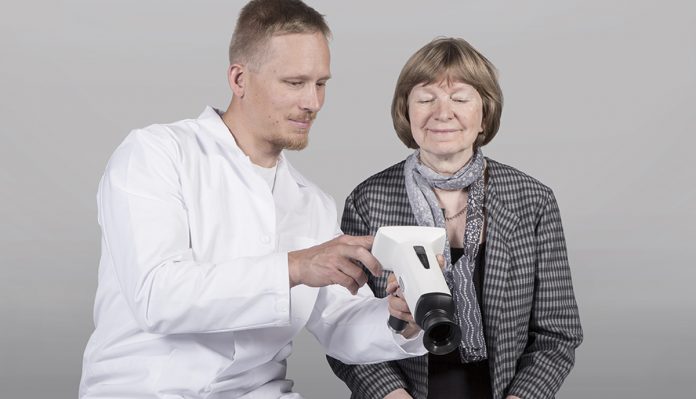
Our eyes are considered the most important sense, according to OPTOMED. Here, the firm explains that even though most of us recognise the importance of our sight, many of us are not aware of the importance of systematic eye checks and we are not protecting this valuable sense well enough
Most people value sight above all other senses. Numerous studies have shown that vision impairment is often associated with various negative health outcomes and poor quality of life1. Still, approximately 1.3 billion people globally live with some form of vision impairment2. Studies have shown that 80% of all vision impairment is considered avoidable by early detection and appropriate treatment.
Additionally, WHO has estimated that diabetic retinopathy is responsible for 4.8% of global blindness.3 Clinical studies spanning more than 30 years have shown that appropriate treatment of diabetic retinopathy can reduce the risks by 90%4. Thus, provision of effective and accessible eye care services is key for controlling visual impairment including blindness5.
The need for mobile eye screening devices
Optomed Ltd was founded in 2005 to meet the challenge of more accessible and affordable eye screening devices. Seppo Kopsala, the CEO and founder of Optomed states: “In the time when Optomed was established, retinal examinations and eye screening was performed mainly on hospital level. The service was not available in rural areas, low-income countries or with patient groups that are not able to travel and sit in front of a tabletop fundus camera. This poor access to eye examinations was the reason why we started developing a portable, hand-held fundus camera so that the service would be available to all individuals worldwide and we could help healthcare professionals to prevent blinding eye diseases by early detection.”
Today, Optomed is a world-leading manufacturer of hand-held fundus cameras and screening management solutions with distribution in over 60 countries globally. Optomed cameras are being used by major public hospitals, primary care centres, private clinics, non-government and charity organisations around the world. Optomed’s camera is also listed on the standard list of The International Agency for the Prevention of Blindness, IAPB.
In 2017 Optomed launched its newest camera, Optomed Aurora, which was developed keeping in mind company’s mission of preventing avoidable blindness even in economically and geographically demanding regions. Optomed Aurora was built to optimise accessibility, connectivity and battery-technology so that fundus imaging services could be transferred from hospitals and specialised clinics closer to populations who would otherwise not have access to routine eye-checks. This shift can have great influence on the population-wide eye-health as well as on the overall healthcare expenditure.
Eyes are a gateway to examining blood vessels
Blood vessels can be observed noninvasively in eyes, so they serve as a window to examine signs of several diseases. Today fundus imaging is routinely used to screen for diabetic retinopathy, and to seek signs of age-related macular degeneration and glaucoma; thus, the typical vision-affecting eye-diseases.
In the recent years, there has been research done to find new ways to exploit retinal images clinically especially within neurology retinal vessels; which can be visualised and quantified noninvasively; are being used to study diseases like dementia and stroke in vivo6, 7.
Further extension on the use of retinal images has been realised by applying artificial intelligence (AI) which enables extracting new data from the images8. The data can be used, for example, to predict cardiovascular risk factors; such as age, smoking status and systolic blood pressure; which were not previously known to be present or quantifiable in fundus images9.
It is easy to claim that the importance of fundus imaging will increase in the future, thanks to its simplicity, noninvasive characteristics, and the increasing number of feasible applications. The widened application field combined with a clever use of information technology and AI will make fundus imaging pivotal part of the diverse routine and specialised healthcare practices.
References:
1 Making Eye Health a Population Health Imperative: Vision for Tomorrow. National Academies of Sciences, Engineering, and Medicine. National Academies Press (US); 2016 Sep 15.
2 Seth R Flaxman et al., Global causes of blindness and distance vision impairment 1990-2020: a systematic review and meta-analysis. Lancet Glob Health, October 2017.
3 WHO. Vision impairment and blindness. Media centre, Fact sheet, October 2017, www.who.int/mediacentre/factsheets WHO. Prevention of blindness from diabetes mellitus. Report of a WHO consultation
4 EURETINA 2017. Retinal Diseases Report, meta-analysis. Jeany Q. Li et al. University of Bonn.
5 European Ophthalmic Review, 2015. Janusz Pieczynski et al. Review of diabetic retinopathy screening methods.
6 Cheung CY, Chen C, Wong TY (2015) Ocular fundus photography as a tool to study stroke and dementia. Semin Neurol. 35(5): 481-490.
7 McGrory S, Cameron JR, Pellegrini E, Warren C, Doubal FN, Deary IJ, Dhillon B, Wardlaw JM, Trucco E, MacGillivray TJ (2016) The application of retinal fundus camera imaging in dementia: A systematic review. Alzheimers Dement (Amst). 6:91-107.
8 Ting DSW, Pasquale LR, Peng L, Campbell JP, Lee AY, Raman R, Tan GSW, Schmetterer L, Keane PA, Wong TY (2018) Artificial intelligence and deep learning in ophthalmology. Br J Ophthalmol Epub ahead of print: 08/11/2018.
9 Poplin R, Varadarajan AV, Blumer K, Liu Y, McConnell MV, Corrado GS, Peng L, Webster DR (2018) Prediction of cardiovascular risk factors from retinal fundus photographs via deep learning. Nat Biomed Eng 2, 158-164.
Please note: this is a commercial profile
Niina Huikuri
Clinical and Marketing Director
Tel: +358 40 535 0998
Laura Piila
Vice President, Sales and Marketing
Tel: +358 40 588 1187
OPTOMED
Yrttipellontie 1, 90230 Oulu, Finland










